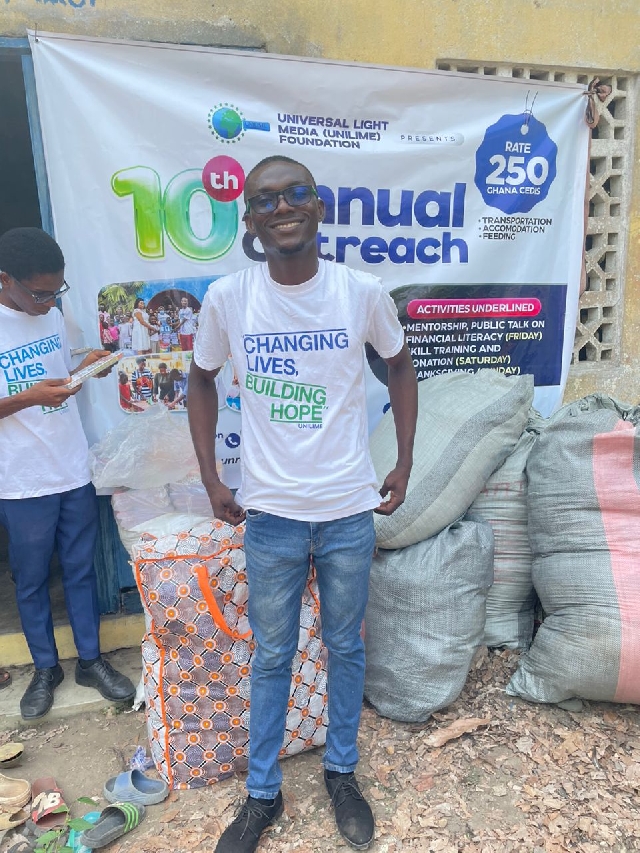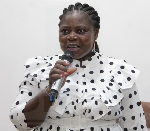The first female Vice President of Ghana: A milestone for development and democracy
 Dennis Agyei Boateng
Dennis Agyei Boateng
The swearing-in of Professor Jane Naana Opoku-Agyemang as Ghana's first female vice president marks a historic moment for the nation and a powerful catalyst for progress in governance, gender equality, and development.
Her ascension to this role breaks barriers and sends a resounding message about the transformative potential of inclusive leadership in Ghana and across Africa.
A Step Forward for Ghanaian Democracy
Ghana has long been hailed as a beacon of democracy in Africa, but the inclusion of women in its highest leadership echelons has lagged. Professor Opoku-Agyemang’s appointment is a testament to the maturing of Ghana’s democratic institutions, signalling a commitment to gender diversity and inclusivity.
Integrating more women into leadership, Ghana’s democracy gains balance and depth, ensuring that the perspectives of half its population are represented in national decision-making.
This milestone enhances the credibility of Ghana's democratic journey, showcasing to the world that the country is ready to embrace diverse leadership for the betterment of all.
Inspiring Women to Lead
The symbolism of this achievement cannot be overstated. For decades, Ghanaian women have faced societal and structural barriers that relegated them to the background of political and economic discourse. Professor Opoku-Agyemang’s rise to vice presidency will undoubtedly inspire countless women and young girls to pursue leadership roles.
This breakthrough challenges entrenched stereotypes that define women’s roles narrowly as homemakers or caregivers. Instead, it highlights the capacity of women to multitask—managing their homes while excelling in positions of power.
The narrative is shifting, and this makes way for a generation of women who see leadership as attainable and integral to their identities.
Driving Development Through Inclusive Leadership
Globally, evidence suggests that nations with greater gender parity in leadership witness more inclusive and sustainable development outcomes. Women leaders bring unique perspectives and approaches, particularly in areas like education, healthcare, and the social welfare sectors, which are crucial to Ghana’s development.
Professor Opoku-Agyemang’s background as an accomplished academic and former Minister of Education has equipped her enough to initiate policies that promote human capital development.
Her leadership is expected to drive initiatives that address pressing issues such as education inequality, maternal health, and gender-based violence.
As she empowers women to lead, Ghana taps into a reservoir of untapped potential, boosting its development trajectory.
A Timely Achievement: The Affirmative Action Bill
This milestone coincides with the passage of Ghana’s Affirmative Action Bill, a legislative framework focused on increasing women’s participation in governance and public life.
The timing is unanticipated, reinforcing the momentum for gender inclusivity and paving the way for more women to ascend to leadership roles.
The Affirmative Action Bill sets a precedent for structural changes, creating opportunities for women to participate meaningfully in governance and policy formulation.
Professor Opoku-Agyemang’s tenure provides a tangible example of what is possible when women are empowered to lead, encouraging a ripple effect across the continent.
Transforming Africa’s Leadership Landscape
Ghana’s achievement resonates beyond its borders, inspiring other African nations to prioritize gender equity in leadership. Africa’s development challenges require innovative and inclusive solutions, and empowering women leaders is a critical step toward achieving this goal.
Professor Opoku-Agyemang’s leadership sends a clear message: women are not merely participants in the development process but pivotal drivers of change.
To embrace this vision, Ghana has become a trailblazer in Africa’s journey toward gender-balanced leadership and inclusive growth.
The appointment of Professor Jane Naana Opoku-Agyemang as Ghana’s first female vice president represents more than a historical milestone—it is a transformative moment for Ghana’s democracy and development.
Her leadership symbolizes a shift in societal norms, challenging stereotypes and inspiring a new generation of women leaders.
As Ghana embarks on this new chapter, the nation stands poised to harness the potential of inclusive leadership, demonstrating to Africa and the world that true development is only possible when everyone, regardless of gender, is given an equal seat at the table.
Mr. Dennis Agyei Boateng,
Development Communication Practioner (Strategic Communication/ Media Management/ Social Action Projects) [email protected]
Source: Dennis Agyei Boateng
Trending News

Come to terms with 2024 electoral loss swiftly – Ato Forson advises Minority
17:33
Minority to withdraw cooperation in Parliament over NDC instigated violence
13:30
Renewed communal clash in Nkwanta South leaves woman injured, homes torched
10:42
Environmental health and sanitation is key to Ghana’s development – Public Health Officer to President Mahama
23:35
Majority Leader labels Obuasi clash as 'most regrettable'
17:26
Revealed: Only 673km of roads constructed since 2017, not Akufo-Addo’s 11,000km - Kwame Agbodza
13:04
V/R: Two arrested over suspected ritual murder in Korve
11:15
Pastors who preach outside ought to have noise regulation permits – AMA
23:17
Mahama's impartial investigation into Obuasi incident will be timely: Ato Forson
17:24
Cancellation of road toll by Akufo-Addo's government was illegal - Kwame Agbodza
12:55



